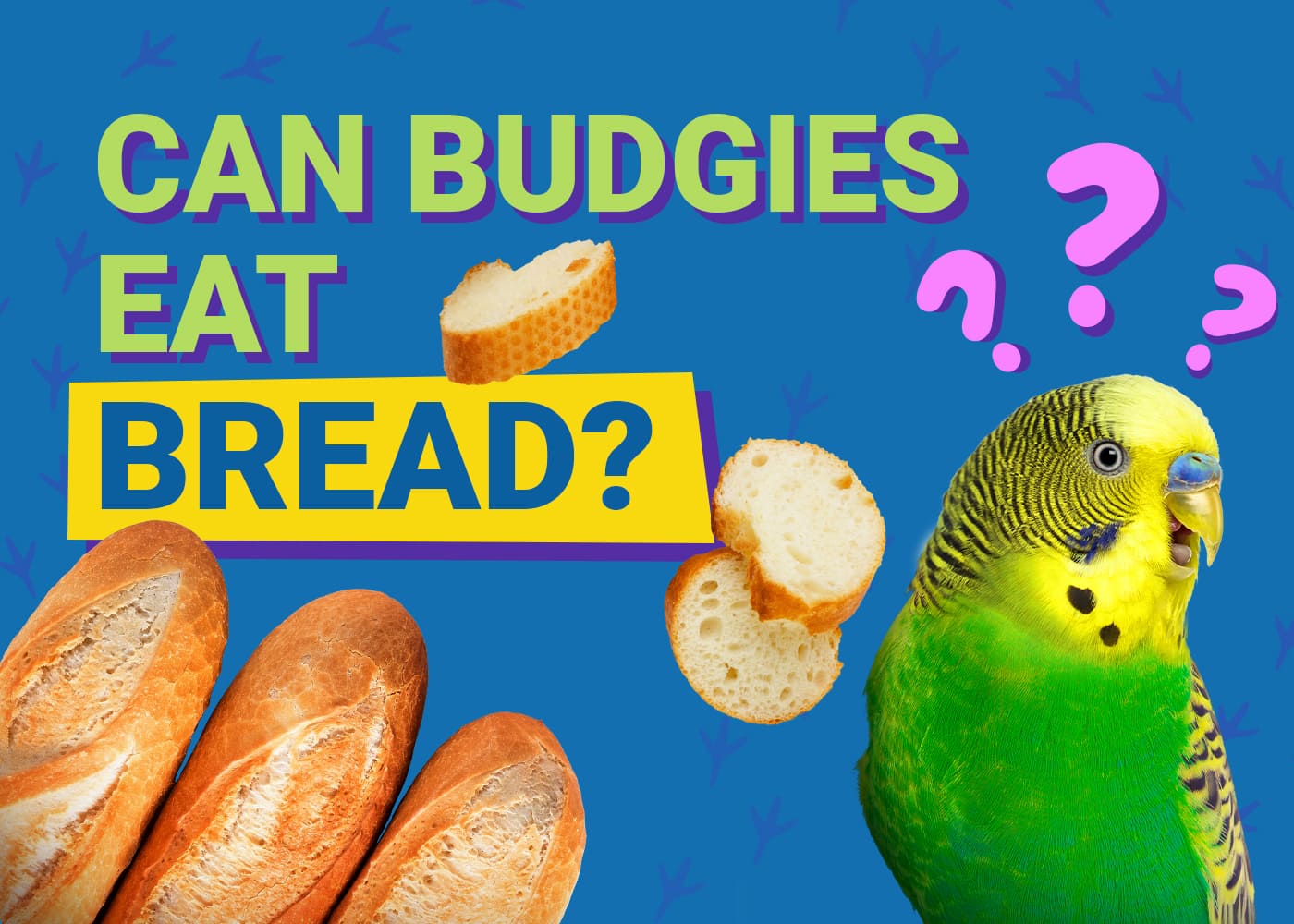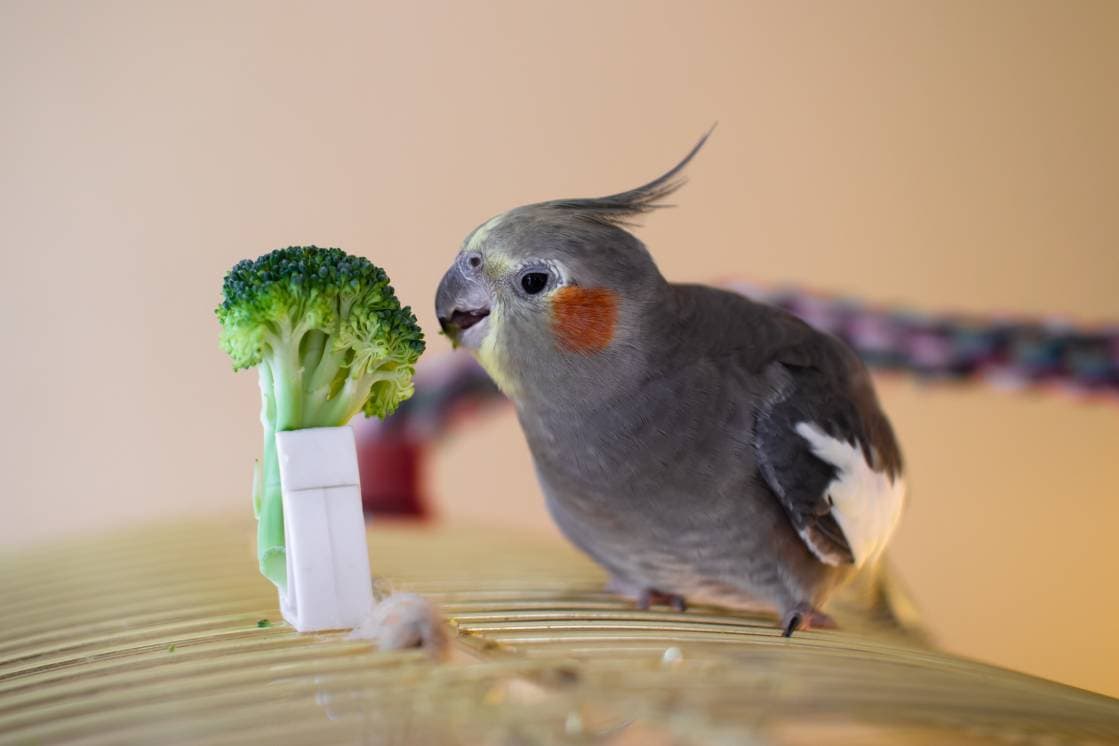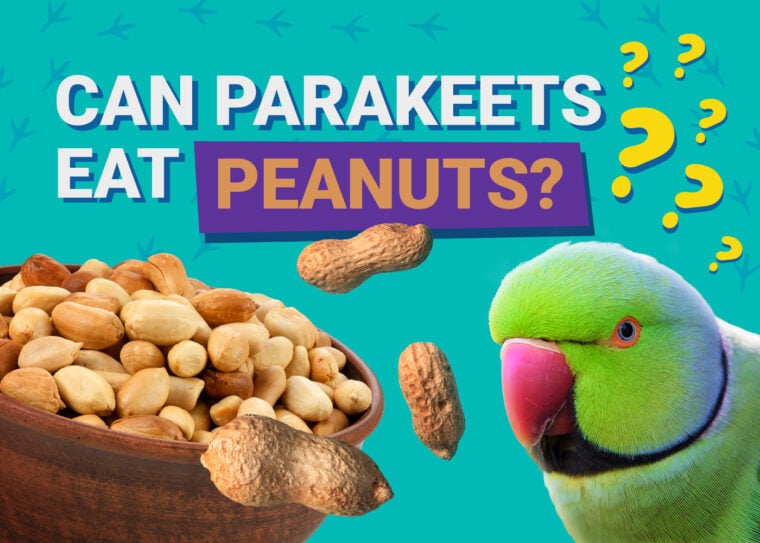
As a proud parakeet owner, you’re probably eager for your feathery pal to try some new foods to broaden his nutritional horizons. Of course, you know that your parakeet needs to eat a nutritious diet that supports good physical and psychological health. But what about feeding your parakeet something like peanuts?
You can feed your parakeets peanuts if they’re high-quality peanuts that have been stored properly. Peanuts that are not stored properly can develop a toxin called aflatoxin that can be fatal to parakeets and other birds.1
To store peanuts so they don’t become contaminated, they should be kept in a dry, cool place. It’s a good idea to keep peanuts in a container with a tight-fitting lid to ensure they aren’t exposed to humidity and moisture. Store the jar in a cool dark environment like a kitchen cupboard to keep them fresh.
Use Care When Feeding Your Parakeet Peanuts
Parakeets love eating peanuts so go ahead and plan on buying some for your bird to make him a happy little guy! But before you rush out to buy peanuts for your parakeet, there are a few things to know about feeding these legumes to your bird. Below is some information about how to feed peanuts to your parakeet to ensure your bird enjoys them without getting sick.
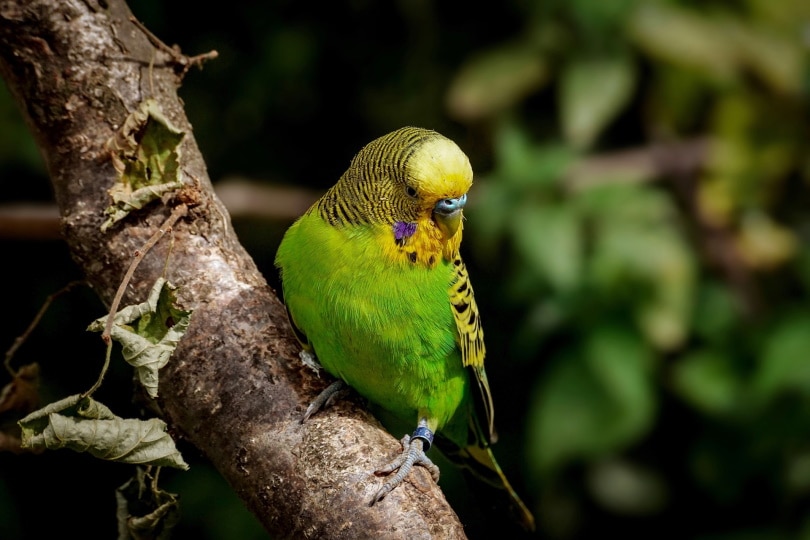
Buy the Best Quality Peanuts You Can Find
We all know that there are many cheap food brands out there that can save us a lot of money. But when it comes to buying peanuts, it’s best to avoid the cheap brands and go instead with the names you trust. Look for a recognizable brand that sells organic peanuts. This way, you’ll be given the assurance that your bird will be eating just peanuts and not any harmful pesticides or chemicals. If you live in an area of the country where peanuts grow, you may be able to find a local farmer that’s selling organic peanuts, which would be great! Otherwise, steer clear of those no-brands and choose a brand you can trust!
Skip the Salt and the Shells!
Parakeets that eat too much salt can become dehydrated. If a bird suffers from severe dehydration from a combination of things like too much salt and a lack of drinking water, it could die. To play it safe, only feed your parakeet unsalted peanuts and always keep that water dish full.
While it may seem easy to toss a few peanuts in your parakeet’s cage that are still in their shells, you shouldn’t do it. Peanut shells don’t contain any nutrients plus they are a choking hazard. You should always take the time to shell the peanuts you plan on feeding your parakeet. Better yet—simply buy unsalted, shelled peanuts so you don’t have to hassle with removing the shells!
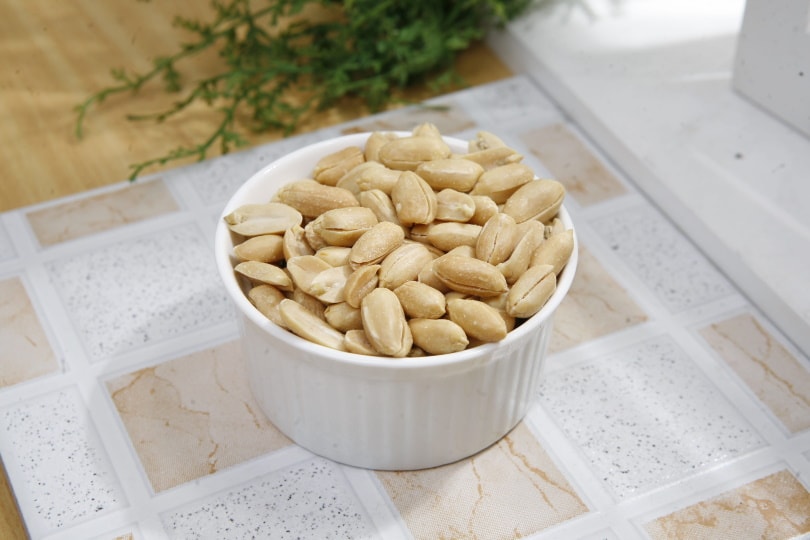
Don’t Feed Your Bird Too Many Peanuts
Even though parakeets love peanuts, you shouldn’t feed your bird too many of these legumes. Peanuts should never replace a high-quality parakeet mix. Your bird needs all the nutrients and vitamins found in that combination of seeds, grains, nuts, vegetables, and fruits.
A parakeet can eat peanuts as a snack. Just break up two or three unsalted, shelled peanuts and feed them to your bird every couple of days. Moderation is key here so don’t go overboard, even if your parakeet acts like he wants more peanuts!
Other Snacks to Feed Your Pet Parakeet
Now that you know you can feed peanuts to your bird, you may be wondering what other things you can give a parakeet to snack on. Below are a few snacks your feathered friend will love:
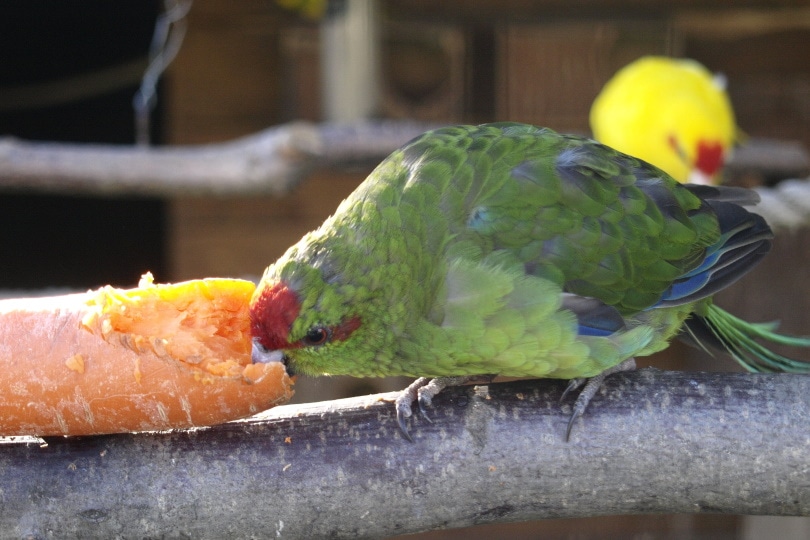
When feeding these items to your parakeet, be sure to chop up the snacks so they’re easy for your bird to eat. In addition to these yummy things, you can also feed your parakeet berries like raspberries, strawberries, and blueberries. Parakeets also enjoy a snack of cottage cheese, tuna packed in water, and alfalfa sprouts now and then.
What Your Parakeet Can’t Eat
While parakeets can enjoy a wide variety of snacks, there are a few things you should never feed your little bird. There are a couple of things that are more than unhealthy for parakeets as they’re also toxic.
Avocados are the worst things to feed a parakeet because they contain persin. This is a substance that can cause respiratory problems in birds, and especially smaller birds like parakeets.
Chocolate is another dangerous snack to give a parakeet. The two substances to blame here are theobromine and caffeine as neither is good for birds. If a parakeet were to eat a lot of chocolate, its heart would pump very fast which would be akin to an energy overdose. Even if you’d like to share a piece of scrumptious chocolate with your bird, don’t be tempted because it could make him very sick.

Fruit Pits and Seeds
Many fruits with seeds or pits contain a cyanide compound that’s toxic to birds. In the wild, parakeets have a natural sense of what they should and shouldn’t eat, but that doesn’t hold true for parakeets kept as pets. Don’t allow your parakeet to eat cherry plum, peach, apricot, or nectarine pits, or the seeds inside apples and pears. If you want to feed your bird any of these fruits, remove the seeds and/or pits before giving them to your pet parakeet.
Conclusion
It’s perfectly fine to feed peanuts to your pet parakeet. Just be sure the peanuts are fresh and dry and without any added salt. Be sure to remove the shells and crumble the legumes up a bit before giving them to your bird.
You can treat your parakeet to some healthy snacks now and then, if you don’t go overboard with the goodies! Most of your parakeet’s diet should be a high-quality parakeet mix that’s loaded with healthy vitamins and minerals.
- You may also want to read: Can Parrots Eat Pears? What You Need to Know!
Featured Image Credit: Piqsels




